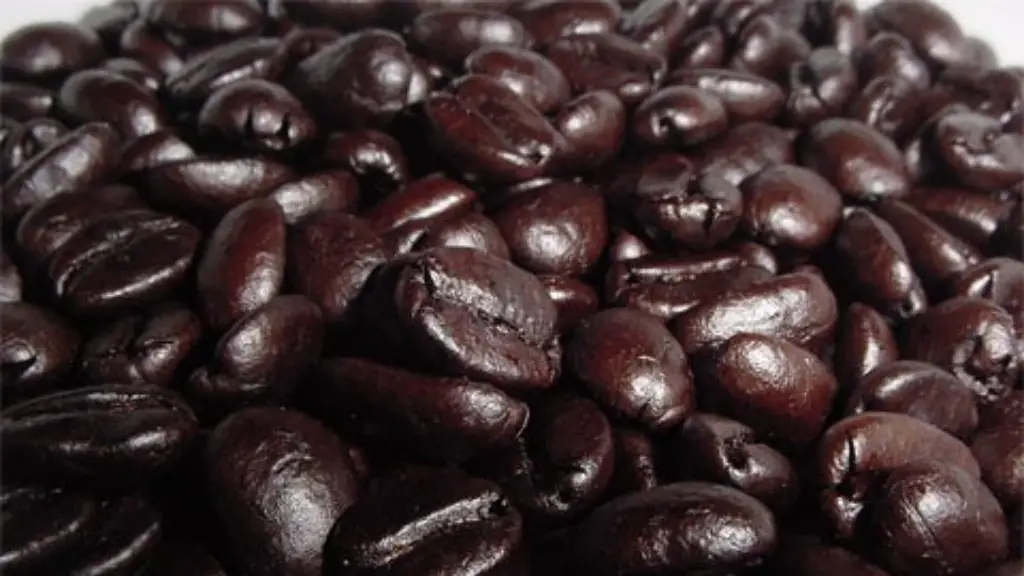Most people are familiar with the energizing effects of coffee. But is it a good idea to drink a cup of coffee before a workout? Despite being commonly drunk before exercise, the answer is not so clear-cut. While some research suggests benefits to caffeine consumption before a workout, others have highlighted potential drawbacks.
Nutritionists consider coffee to be a source of fuel if consumed in the right quantity. A cup of coffee consists of 5–8% of carbohydrates, along with other essential vitamins, minerals, and antioxidants. It provides just enough energy for the body to perform optimally during the workout. Additionally, some studies suggest that caffeine can reduce muscle soreness and improve power and strength. For example, a recent study found that caffeine has an ergogenic effect of enabling people to be able to exercise for an extra 2-3 minutes.
On the other hand, drinking coffee before exercise could lead to health issues. Slightly elevated coffee consumption can lead to an increase in blood pressure, an increase in heart rate, and heart palpitations. Excessive coffee consumption can also cause mood swings, stomach upset, and headaches. For this reason, athletes need to be mindful that too much caffeine can be harmful and should not exceed 3 cups a day.
To avoid any potential harm, nutritionists advise that coffee drinkers talk to their medical professionals if they are pregnant, have a heart condition, or have any similar medical-related issues before exercising. Additionally, coffee drinkers should consume caffeine in smaller portions by drinking half a cup at a time and taking ample breaks. That way, the body’s energy level remains moderate, and regular exercise can be performed without any issues.
Overall, it is important to note that moderate coffee consumption before a workout may have its benefits such as increased performance levels. But always make sure to follow the right caffeine intake and consult with a medical professional.
Does Caffeine Increase Performance?
Caffeine has been widely studied by sports scientists, and they have explored the potential effects and impact of caffeine before a workout. Many experts believe that caffeine stimulates the nervous system to work even harder during exercise, which increases physical performance levels. Additionally, some studies suggest that caffeine helps the body to convert fat into energy, which provides endurance and better muscle power in the long run. Therefore, it is a safe conclusion that moderate caffeine consumption can give athletes the additional energy to extend their workout sessions and still persist in their endurance activities.
It is worth mentioning that the amount and type of caffeine used plays a crucial role in determining the resulting outcome of consuming caffeine before exercise. A study found that energy drinks containing caffeine and other elements such as taurine are better at providing energy during a workout than regular coffee. Therefore, athletes should experiment with various types of caffeine drinks and find out which drink works the best before the workout.
Moreover, caffeine metabolism may also play an important role in shaping the response to exercise. As the rate of metabolism varies significantly among individuals, some individuals may not benefit as much as others by consuming caffeine before exercise. Therefore, athletes should keep track of their workouts and determine if caffeine is having an overall positive effect on their performance.
In conclusion, caffeine can increase the performance level of athletes, but the amount and type of caffeine matters. Athletes should be mindful that the effects of caffeine can vary and adjust their caffeine intake accordingly.
Risk Factor
Apart from the potential benefits, drinking coffee before a workout could put athletes at risk of certain health ailments. One of the most common side effects of energy drinks is dehydration. It is important to keep in mind that regular cups of coffee contain about 95-100mg of caffeine, which is equivalent to about 8-10mg of caffeine in each energy drink. Therefore, it is essential to maintain an adequate level of hydration by drinking enough fluids before and after exercising.
In addition, individuals with gastrointestinal problems should be especially mindful when drinking coffee before a workout. Coffee increases the acid levels in the stomach which could lead to inflammation and pain in those who are susceptible to such conditions. Therefore, athletes with gastroenterological problems should seek medical advice before drinking coffee.
Moreover, research evidence suggests that drinking coffee with a meal can reduce the body’s absorption of certain minerals such as iron and calcium. As these minerals are vital for muscle regeneration, athletes should take extra caution to include adequate sources of iron and calcium in their diets.
In summary, while coffee may have potential performance-enhancing benefits, athletes should always keep an eye on the risks that come with it. Coffee should not replace food and athletes should seek medical advice if they experience any gastrointestinal discomfort.
Life Style Decision
When it comes to drinking coffee before exercise, the decision is ultimately a personal one. Different athletes may have varied reactions to coffee and should always listen to their bodies. A good way to go about it is to gradually increase the caffeine intake, experiment with different types of energy drinks, closely monitor performance and adjust the consumption accordingly.
If an athlete is looking to longer-term health benefits, they should consult with a nutritionist who can help with developing a personalized diet and exercise plan. Additionally, athletes should also take into consideration the impact of coffee on their sleep patterns. Caffeine can have a slight delay in allowing the body to enter a deep sleep which may have significant implications in the long run. Therefore, athletes should drink coffee in moderation and wary of the impact on their sleep cycles.
At the end of the day, the decision of whether or not to drink coffee before a workout largely comes down to lifestyle preference. If performed responsibly, coffee can be a great source of energy boost and can help enhance performance levels. On the other hand, if the coffee intake is excessive or not monitored closely, it can lead to various health issues down the road.
Conclusion
In conclusion, while coffee can have potential benefits, athletes should take caution while drinking coffee before exercising. Caffeine can provide the body with additional energy and could help athletes in increasing their performance levels. But it is important to drink coffee in moderation, experiment with different types of energy drinks, and consult with a nutritionist for personalized diet and exercise plans.
Additionally, athletes should also be aware of the potential risks of drinking too much coffee such as dehydration and possible gastrointestinal problems. Finally, whether or not to drink coffee before a workout is a personal decision and athletes should always listen to their bodies and adjust accordingly.




